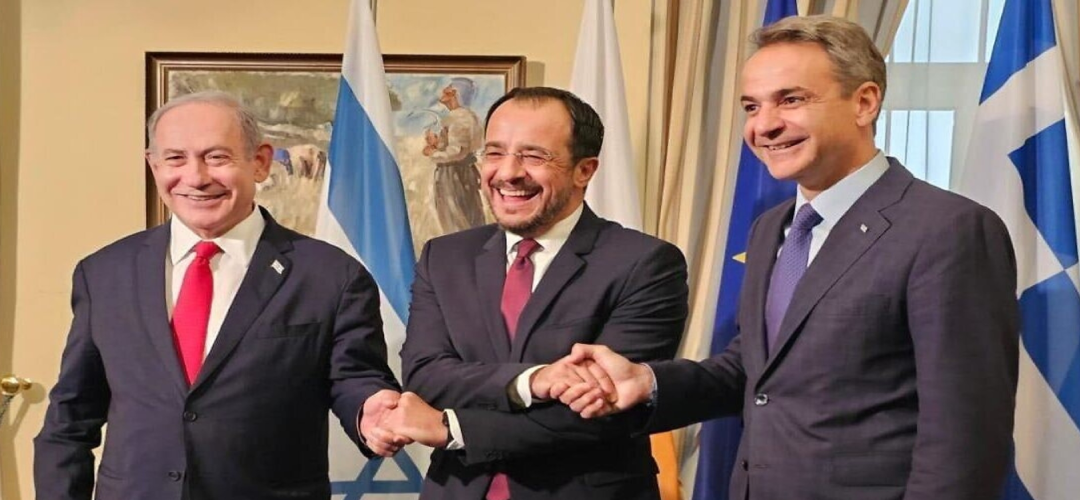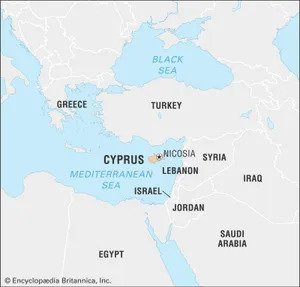India: Venturing Into the Mediterranean?
September 9, 2023 | Expert Insights

In a globalized and interconnected world, events in one part of the planet have an impact on the other end. Division of the globe into neat regional siloes does not change this reality. India has always been a regional power restricting its influence to South Asia. But now it is deciding to spread its wings beyond its immediate neighbourhood. The Mediterranean region presents a whole new range of possibilities for Indian diplomacy.
Background
The Mediterranean region is a complex one. All countries are somehow entwined despite their differences by a shared past and cultural affinity. But the differences are also huge with respect to their systems of governance, levels of economic development and commitment to regional integration.
The Mediterranean is divided into several sub-regional groupings. Each of these sub-regional entities has its own distinct culture and traditions. The main sub-regional divisions that can be made here are the main EU countries, EU outlier countries in the Balkans and Turkey, the Levant (Mashreq) and North Africa (Maghreb).
There are large asymmetries between the countries of the northern and southern shores of the Mediterranean region. The most obvious difference here is in terms of economic development. The EU countries and Israel are highly developed. Cyprus is divided politically between Greece and Turkey. Maritime boundaries in this region are not clearly demarcated, generating tensions as these are resource-rich waters.

Analysis
The Mediterranean region cannot be categorized simply; the common waterway is itself a source of division. On top of this, there are geopolitical tensions. Israel, Cyprus and Greece are the only three countries here that have some form of commonality with each other.
The invitation that India has received has not come out of the blue. All three Mediterranean nations have been keeping a close eye on the sub-continent. They are seeing India’s rise. South Asia has always interested them. Now, they have the opportunity to translate that interest into action.
The links between the Mediterranean Sea and the Indian Ocean are quite ancient. Trade has been going on between these two water bodies for quite a long time. In the colonial era, this increased. The opening of the Suez Canal aided this process. This canal was the lifeblood of the British Empire. And the main destination of the trade carried out through this canal was India.
So, India is not starting its involvement in this sea from scratch. There is a historical precedent. The colonial links with the Mediterranean Sea werewere lost when India became independent. Today, this region has become very important for India. This is because of the development of the new concept of the Indo-Pacific. This concept connects the Indian and Pacific oceans. The Mediterranean Sea through the Suez Canal is the access point for European, Levantine and North African countries to the Indian Ocean. In such a situation, India is no longer a far-off country.
What are India’s interests in the Mediterranean? New Delhi is trying to become a global power. To fulfil this objective, a number of criteria need to be met. One of the basics is that of an expanded naval presence. The Mediterranean Sea is the southern underbelly of Europe. This makes India’s future naval expansion there a geo-strategic imperative of the highest order.
Any such naval expansion cannot happen in a vacuum. First, the Indian Navy's own capabilities have to be expanded considerably to meet this high objective. Secondly, India cannot barge into someone's neighbourhood just like that. It has to have some kind of an opening.
This opening has already begun for India. The catalyst has been Israel. The Indo-Israeli relationship has moved on to the next level. Israel is today India’s biggest champion on the world stage and vice-versa.
Considering all this, it is no surprise that the proposal to make India a part of the Mediterranean framework was put forward by none other than Israel. For the Israelis, the benefits are clear. A rising India is good for them. Indo-Israeli trade is at an all-time high. A large number of Israeli tourists visit India and Indian tourists going to Israel has also increased. A growing Indian economy needs all the technical expertise it can get. Israel is the leader in this area. It knows how to use minimum resources to achieve the maximum objectives. Apart from this, the security cooperation between New Delhi and Tel Aviv is also at an all-time high. Israeli weapons technology is adding to India's arsenal, and joint collaboration is also being carried out in the defence sector.
India’s relations with Greece go far back in time. Greek and Indian cultures have interacted with each other and influenced one another. During the Cold War, Greece and India were on opposite sides. However, a convergence has come out between Indian and Greek interests. The regional rival of Greece is Turkey. Territorial disputes exist between these two states in the Mediterranean and Aegean Seas. Over the years, Turkey has fostered a close relationship with Pakistan. They have consistently supported Islamabad’s position on Kashmir. Here, the equation for India is quite simple. My enemy’s enemy is my friend. The Greek side has also come to realize this.
With Cyprus, India has had a more direct impact. When Cyprus was fighting for its independence against British occupation, India was there by its side. Soon after Cyprus gained its freedom, India established official diplomatic relations. India has also played a crucial role in maintaining peace in Cyprus. Tensions have remained high in the divided island of Cyprus. The Turks occupy the northern half of the island. This portion is recognized as a separate entity only by Turkey. The United Nations Peacekeeping Force in Cyprus (UNFICYP) has sought to maintain peace here since 1964. India has been a big part of this peacekeeping contingent from the beginning and has made sacrifices.
In the meantime, China is making headway in the Mediterranean as well. The regional countries seek a country with shared values they can trust to counter this. India fits the bill perfectly in this case.
Energy will be a major component of India’s growing presence in the Mediterranean. The underwater energy reserves in this area are huge. But, due to geopolitical differences and a lack of external buyers, these resources have not been exploited properly. The Indian energy market is vast and growing, and Indian investments could spur oil production in the region.
South Asia will always remain India’s core area of concern. Yet, as it pursues its wider Indo-Pacific policy, the Indian government cannot ignore certain critical waterways in the world. The Mediterranean Sea is one such waterway. India is still a minor player here. This could change in the future. Still, New Delhi must watch its steps. It must not set itself too ambitious goals in the Mediterranean. Instead, it has to move forward step by step to achieve its final goal of becoming a global power.
Assessment
- India has to be wary in its dealings with the Mediterranean countries as an external power. It must not get so involved that it becomes counter-productive. The territorial disputes between the countries here are something for them to sort out. India has no stakes in this game. All it desires is to maintain the freedom of movement of all countries in international waters.
- The Mediterranean powers who have invited India have not done so out of any altruism. They see an emerging power in India and want to bring it within their fold. India, on its part, must play its role sensibly.
- However, India's distance from the Mediterranean will be a factor in future engagement. Setting up the logistics for energy exploration and trade will take time and money.








Comments